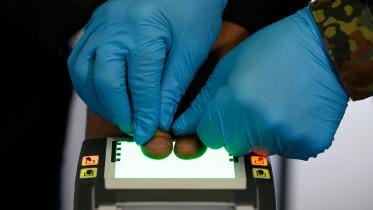biometric
Users can re-buy blocked SIM after May deadline
Mobile phone subscribers can re-buy their previous number upon failure to re-register their SIM cards with biometric data after May 31 deadline, according to a decision taken in a meeting chaired by BTRC.
8 May 2016, 12:44 PM
Facebook loses first round of biometric case
Facebook Inc lost the first round in a court fight against some of its users who sued the social networking company, alleging it "unlawfully" collected and stored users' biometric data derived from their faces in photographs.
6 May 2016, 14:59 PM
All the biometric SIM registration memes
People put up with the repeated messages and calls from customer service on their mobile phones, but continue to silently endure all, while producing a few hundred ingenious memes to vent their frustration.
1 May 2016, 05:44 AM
Operators face trouble with SIM re-registration
Mobile phone operators allege that they were facing troubles to re-registrar the SIM cards with biometric data.
29 April 2016, 10:29 AM
Matrix of Biometrics
The man was up against a cave wall, holding his freshly ground and moistened haematite pigment in a coconut shell. He had spent the morning painting two Babirusas (pig-deer) with the chewed, bristly end of a twig. It was a hot day in Borneo; the forest breeze did not reach inside the cave. He was about to wipe the sweat off his brow, when the sight of his arm gave him an idea. He placed his hand against the cave wall and blew paint all over it, leaving an unmistakable imprint on the side of the wall. Little did he know that 40,000 years later – his work of art would dethrone European caves as the earliest instance of human creativity. Unknowingly, he had also become one of the first, deliberate users of biometric information.
17 April 2016, 18:00 PM
HC verdict on biometric SIM registration Tuesday
High Court will deliver Tuesday its verdict on a writ against biometric re-registration and registration for mobile phone’s subscriber identity module (SIM) cards.
10 April 2016, 14:09 PM
HC questions legality of biometric SIM registration
The High Court has questioned the legality of biometric registration for purchase of mobile operators’ Subscriber Identity Module (SIM) cards.
14 March 2016, 08:02 AM









